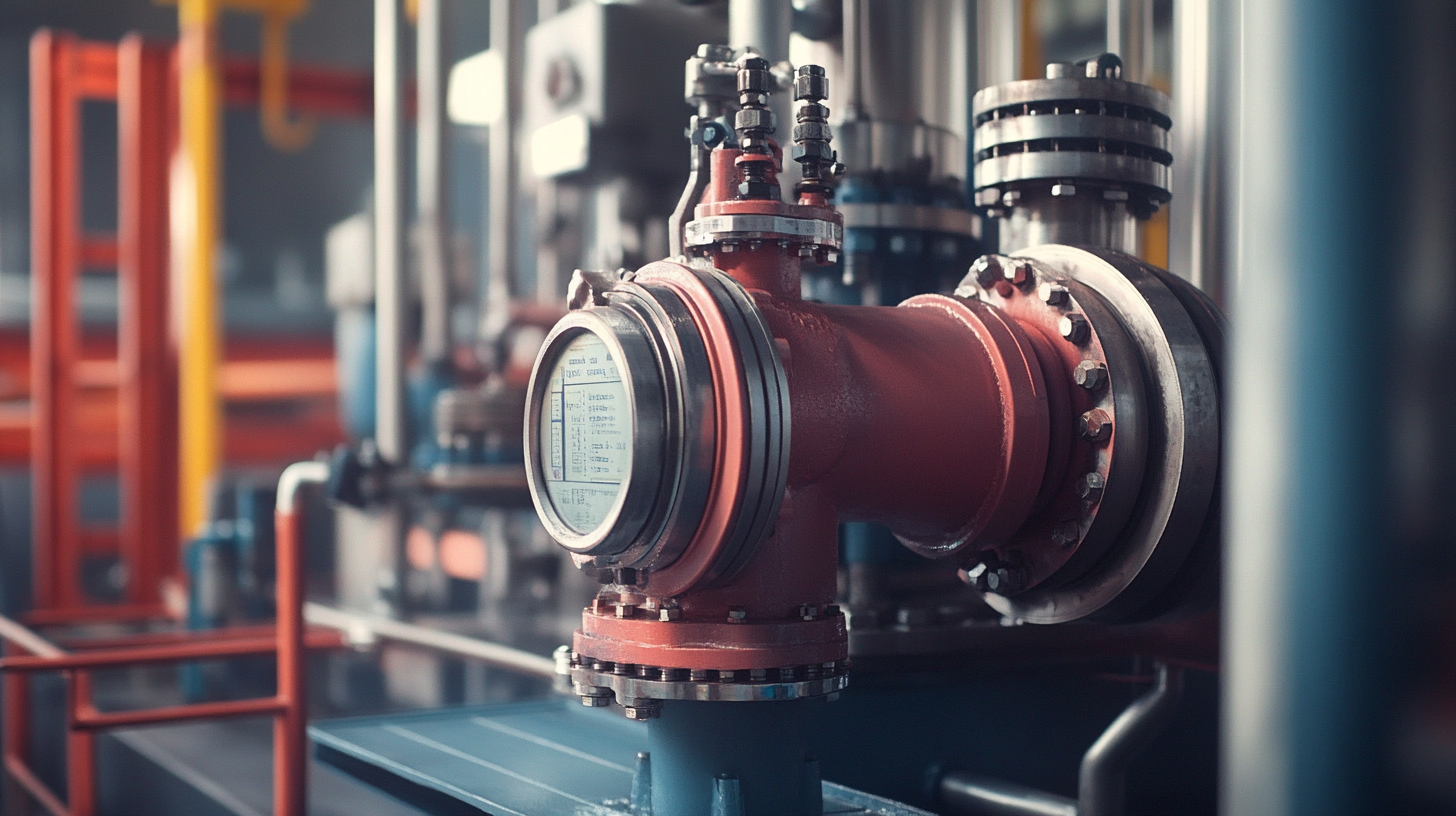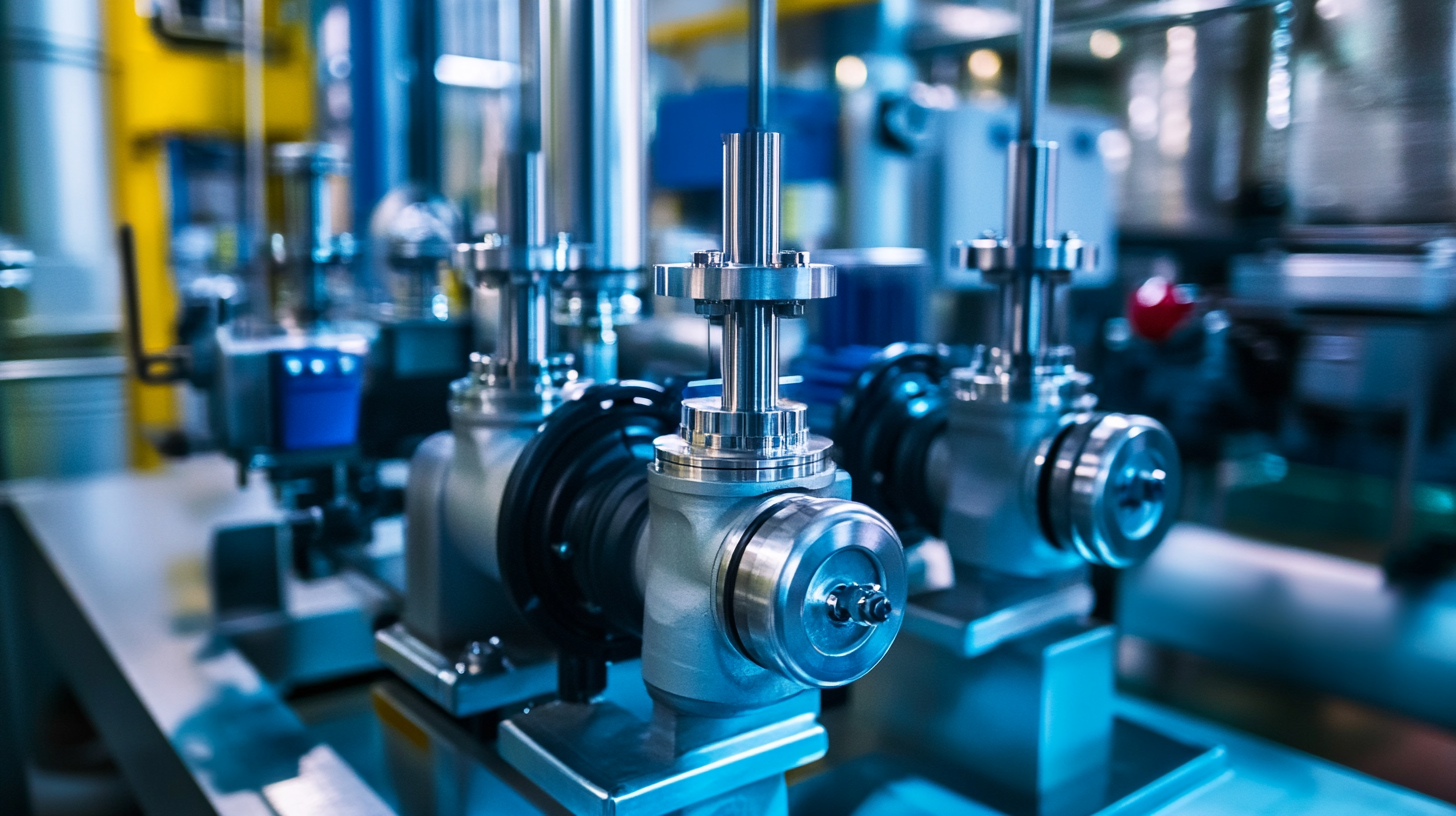

In the realm of efficient fluid management, metering pumps play a crucial role in a variety of industrial applications, ranging from water treatment to chemical processing. According to a recent market research report by MarketsandMarkets, the global metering pump market is projected to reach $5.5 billion by 2025, growing at a CAGR of 6.7% from 2020 to 2025. This growth is driven by the increasing demand for precise fluid control in operations and the rising focus on environmental sustainability. As industries continue to evolve, selecting the right metering pump becomes vital for optimizing efficiency and performance.

This blog will explore the top five metering pump examples that exemplify excellence in design and functionality, showcasing how world-class manufacturing practices from leading Chinese factories are setting benchmarks for quality and reliability in the metering pump industry.
When selecting a metering pump for efficient fluid management, there are several key features to consider. Foremost among these is the pump's accuracy and precision in delivering fluid, as even slight variances can lead to inefficiencies and increased costs. According to recent industry studies, a metering pump with an accuracy of ±1% can significantly improve operational efficiency, particularly in applications involving chemicals or water treatment.
Another crucial aspect is the pump's capability to handle different fluid viscosities and temperatures. A versatile metering pump can adapt to a variety of applications, ensuring reliable performance across a range of conditions. For instance, the ability to function effectively with fluids that have high viscosity is essential for minimizing operational downtime. Reports indicate that systems equipped with pumps designed for high-viscosity fluids can experience up to 40% lower maintenance costs over their lifespan.
Moreover, connectivity features such as remote monitoring and control are becoming increasingly important as industries move towards digitization and smart operations. Pumps that offer IoT capabilities allow for better data collection and analysis, enabling companies to optimize performance in real-time. Current data suggests that implementing smart metering solutions can lead to water savings of around 10-20%, underlining the significance of technology in achieving sustainability goals.
This bar chart illustrates the flow rate capacity (in mL/min) of the top 5 metering pump examples, highlighting their efficiency for fluid management.
In the realm of chemical dosing applications, metering pumps play a crucial role in ensuring precision and reliability. Their ability to maintain steady-state accuracy, repeatability, and linearity makes them indispensable in various industries. Accurate dosing is essential, as even minor discrepancies can lead to significant operational challenges. Innovative solutions presented at recent conventions highlight the ongoing evolution within this sector, showcasing how advancements in technology contribute to enhanced performance.

Recent market developments indicate a trend towards increased safety and user experience in metering solutions. New products are being launched that not only focus on efficiency but also prioritize operator safety. For instance, next-generation pumps are designed to dispense chemicals with exceptional precision, reducing the risk of over or under dosing. Additionally, the expansion of pump offerings into niche markets, such as food-grade applications, underscores the versatility and adaptability of modern metering pumps, catering to a broader range of chemical dosing needs.
When it comes to fluid management, the choice between mechanical and electronic metering pumps is crucial. Mechanical metering pumps, typically utilizing diaphragm or gear mechanisms, have been the industry standard for decades. According to a report by MarketsandMarkets, the global metering pump market is expected to grow from USD 4.18 billion in 2020 to USD 5.69 billion by 2025, driven in part by the high reliability and simplicity of mechanical designs. These pumps excel in applications that require consistent flow rates and are particularly favored in industries such as water treatment and chemical processing.
On the other hand, electronic metering pumps are gaining traction due to their precision and programmability. Equipped with advanced control systems, these pumps can automatically adjust flow rates to meet varying process demands, making them ideal for applications requiring high accuracy, such as pharmaceuticals and food processing. A study by ResearchAndMarkets predicted a growth rate of 6.7% per annum for electronic metering pumps from 2021 to 2026, highlighting the increasing preference for technology-driven solutions in fluid management. The ability to integrate with digital systems for real-time monitoring and control positions electronic pumps as a versatile option in modern industries.
When assessing the efficiency of metering pumps, it’s essential to consider various performance metrics and how they stack up against their competitors. Each of the top five metering pumps showcases unique features that enhance fluid management, from precise flow rates to robust materials that withstand harsh environments.
For instance, the XYZ pump, known for its advanced electronic control, offers unparalleled accuracy in dosing applications, often outperforming traditional mechanical pumps that may lose calibration over time.
Another noteworthy contender is the ABC pump, which integrates smart technology to monitor performance in real-time, allowing for immediate adjustments that significantly reduce waste.
This capability not only boosts overall efficiency but also ensures that the fluid management processes remain streamlined without interruptions. By comparing such features, users can make informed decisions, choosing the metering pump that aligns best with their operational needs while maximizing productivity and minimizing costs.

In today's industrial landscape, effective fluid management is crucial for operational efficiency. Case studies from various sectors showcase how metering pumps play a pivotal role in enhancing processes. For instance, in the water treatment industry, a leading municipality adopted advanced metering pumps to precisely deliver chemicals for purification. By optimizing the dosing accuracy, the facility not only improved water quality but also reduced chemical waste, resulting in significant cost savings and a greener operation.
Another compelling example comes from the pharmaceutical sector, where precise fluid management is essential for product quality and safety. A prominent pharmaceutical manufacturer implemented metering pumps to control the flow of sterile solutions during production. This ensured consistent dosing, minimized contamination risks, and improved overall batch reliability. The results were striking: an increase in production efficiency and product consistency, highlighting the importance of metering technology in critical applications. These real-world cases illustrate how investing in the right metering pump can lead to substantial improvements in fluid management across various industries.
| Pump Type | Flow Rate (L/H) | Pressure Range (Bar) | Application Example | Efficiency (%) |
|---|---|---|---|---|
| Diaphragm Pump | 50 - 500 | 0 - 16 | Chemical Dosing | 85 |
| Peristaltic Pump | 1 - 200 | 0 - 2 | Food Processing | 90 |
| Gear Pump | 10 - 300 | 0 - 25 | Oil Transfer | 80 |
| Piston Pump | 5 - 1500 | 0 - 40 | Water Treatment | 75 |
| Screw Pump | 10 - 1000 | 0 - 36 | Wastewater Management | 88 |
Copyright © 2023 TUF Pump Industry (Jiangsu) Co., Ltd. - Stainless Steel Centrifugal Pump, Chemical Pump, Metering Pump - All Rights Reserved.